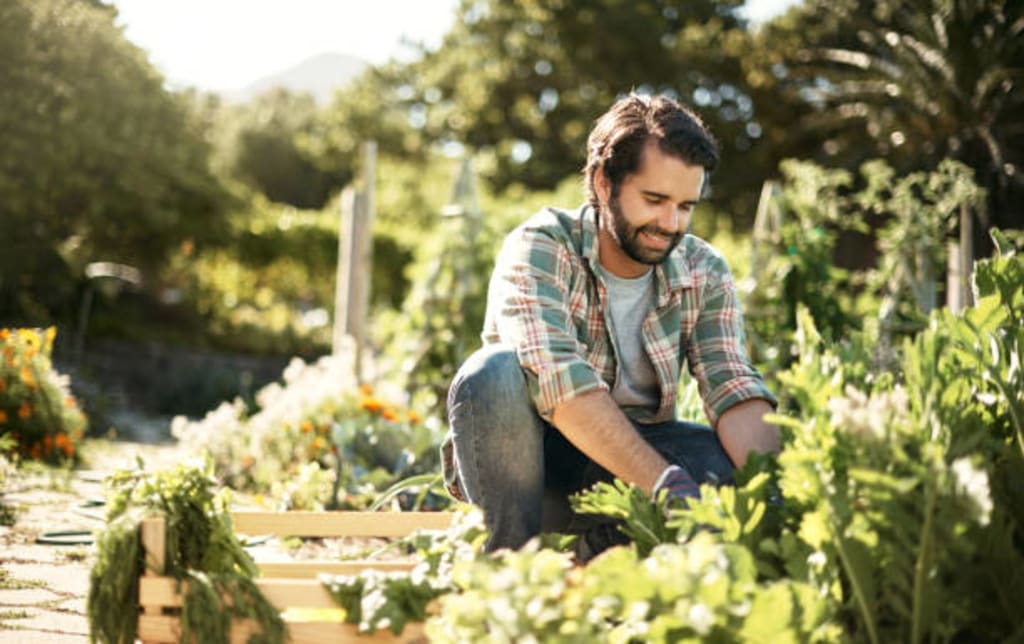
Growing your own organic garden is not only a rewarding and enjoyable experience but also a sustainable choice that promotes healthier living and benefits the environment. Whether you have a spacious backyard or a small balcony, cultivating your own organic garden allows you to have control over the quality of your produce and reduces your carbon footprint. In this beginner's guide to sustainable gardening, we will provide step-by-step instructions and valuable tips to help you start and maintain an organic garden, no matter your level of experience or available space.
1. Choose the Right Location :
Selecting the right location is essential for the success of your organic garden. Identify an area that receives ample sunlight, as most vegetables and herbs require at least six hours of direct sunlight daily. Ensure that the soil is well-drained and fertile, avoiding areas prone to pooling water. If you have limited space, consider container gardening or vertical gardening techniques to maximize your growing area. Evaluate the available space and choose plants that are suitable for your specific conditions.
2. Prepare and Improve the Soil :
Healthy soil is the foundation of a thriving organic garden. Start by removing any weeds, rocks, or debris from the area. Test the soil's pH level and amend it accordingly to create an optimal growing environment. Organic matter, such as compost or well-rotted manure, can be added to enrich the soil with nutrients and improve its structure. Avoid chemical fertilizers or pesticides that can harm the environment and compromise the organic integrity of your garden.
3. Select and Plant Organic Seeds or Seedlings :
Choose organic seeds or seedlings from reputable sources to ensure that they have not been treated with synthetic chemicals. Select plant varieties that are well-suited to your climate and growing conditions. Follow the recommended planting guidelines, taking into account factors such as spacing, depth, and timing. Keep in mind that some plants may require support structures, such as trellises or cages, as they grow.
4. Provide Adequate Water and Nutrients :
Water your organic garden regularly, ensuring that the soil remains moist but not waterlogged. Use organic mulch, such as straw or wood chips, to retain moisture, suppress weeds, and regulate soil temperature. To provide essential nutrients to your plants, incorporate organic fertilizers, compost, or natural amendments, such as bone meal or seaweed extract. Follow the recommended application rates to avoid over-fertilization, which can harm plants and the environment.
5. Practice Natural Pest Control :
Preventing and managing pests organically is a key aspect of sustainable gardening. Encourage beneficial insects, such as ladybugs and bees, by planting flowers that attract them. Companion planting, which involves growing certain plants together to repel pests or attract beneficial insects, can also be effective. Regularly inspect your plants for signs of pests or diseases and take appropriate action, such as handpicking pests or using organic pest control methods like neem oil or insecticidal soap.
6. Maintain Your Garden :
Regular maintenance is crucial for the health and productivity of your organic garden. Monitor the growth of your plants, ensuring they have adequate space to thrive. Remove weeds promptly to prevent competition for resources. Prune and train plants as necessary to promote proper growth and airflow. Harvest vegetables and herbs at their peak ripeness to encourage continuous production. Regularly replenish organic mulch to maintain moisture levels and suppress weed growth.
7. Continual Learning and Improvement :
Sustainable gardening is an ongoing learning process. Stay informed about organic gardening practices, new techniques, and plant varieties. Attend workshops, join gardening communities, or participate in local gardening events to exchange knowledge and experiences. Keep a garden journal to track your successes, challenges, and lessons learned. Experiment with different approaches and embrace the joy of learning and growing alongside your garden.
Conclusion :
Growing your own organic garden is a fulfilling journey that allows you to reconnect with nature, promote sustainability, and enjoy the rewards of fresh, pesticide-free produce. By following this beginner's guide to sustainable gardening, you are equipped with the essential knowledge and practices to start your own organic garden and embark on a greener and healthier lifestyle. Happy gardening!
About the Creator
Mark Jani
Beginner to all this. Hope you like my ideas and content :))






Comments
There are no comments for this story
Be the first to respond and start the conversation.